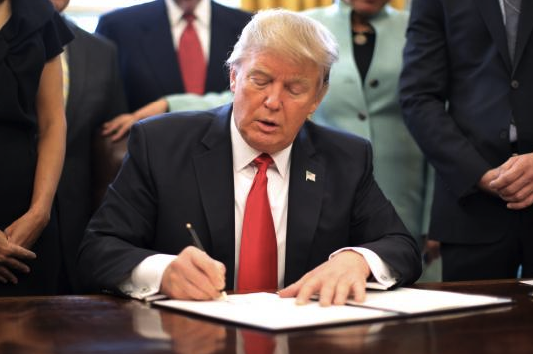“It Was Like Watching a Train Wreck Happen”
Posted on May 30, 2019

No one I know has ever witnessed a train wreck as it happened. As such, when a friend or colleague says or writes that an event “was like watching a train wreck happen,” I’m pretty sure it wasn’t like watching a train wreck happen.
Until Sunday, May 5, that is, when President Donald J. Twitter used his thumbs to announce he would boost the current 10 percent American tariffs on $200 billion of Chinese goods to 25 percent because, he explained, the Chinese had backpedaled on an almost completed trade deal.
That unilateral action kicked off a week of rising political tension and falling commodity prices. China quickly answered with tariff hikes of its own. It said it would increase current tariffs on $60 billion of U.S. goods and, on June 1, hit 5,000 more U.S. products with 25 percent tariffs.
The White House responded by saying it would place tariffs on $300 billion more Chinese goods imported into the U.S.
Markets cracked on the news. Nearly $2 trillion drained from New York equity markets in a week. Commodity prices followed; both new and old crop corn and soybean futures sagged to life-of-contract lows May 13. (All rebounded May 14, however, on news of crop planting delays and a possible federal bailout.)
The President, ever worried about his red-and-rural voter base, quickly took to Twitter to reassure farmers that he had their backs. Initially, he explained, he would use part of the tariffs “paid by China” to purchase excess U.S. commodities that would then be sent “to poor & starving countries in the form of humanitarian aid.”
The idea, of course, was Grade A malarkey for two, key reasons. First, as every farm group economist has said repeatedly for a year, China doesn’t pay U.S.-imposed tariffs; U.S. purchasers of Chinese goods pay them. That means there is no pot of Chinese gold for the federal government to buy American commodities to buck up prices and then give away for free.
Also, as Chuck Abbott of FERN’s Ag Insider, explained in his May 13 report, even “If Trump’s proposal is implemented, it would expand U.S. food donations 10 times or more from recent levels at the same time the administration wants to shut down the premier U.S. food-aid program…”
In fact, Abbott continued, the White House’s 2020 U.S. Department of Agriculture (USDA) budget proposal, “asked for no funding for the ‘inefficient food aid’ approach of shipping U.S.-grown food to recipients overseas.”
When both of those tweeted turkeys failed to fly, the President—with Secretary of Agriculture Sonny Perdue acting as his echo chamber—tossed out his latest plan: send “patriot” farmers $15 billion in “reciprocal” cash which, he said, is equal to “the biggest purchase China ever made.”
Again, there is no “reciprocal”—whatever that means—cash.
Moreover, the “biggest purchase,” noted FERN’s Abbott, “for U.S. exports to China was $25.7 billion in fiscal 2014,” or nearly $11 billion more than President’s suggested 2019 bailout of his 2018 bailout.
No one in the White House, on Capitol Hill or at USDA has said definitively where the billions will come from. The likeliest piggy bank is USDA’s Commodity Credit Corp., or CCC. A year ago, the Trump Administration “borrowed” $12 billion from the CCC for “mitigation” payments—cold cash—to soothe rural bruises after the White House’s first dive into the tariff tarpit. Now comes a likely second, even bigger raid.
All of which leaves U.S. farmers, who less than three years ago strongly backed what they were told was the most free market, most free trade Congress and White House in a generation, again waiting for government bailout checks as the White House continues to hand hard-won export markets to global competitors.
Even worse, few in Congress or the White House have either the courage or plan to stop this runaway locomotive.
On second thought, this is exactly what a train wreck looks like when it’s happening.
© 2019 ag comm

I, too, wonder how a Lutheran farm boy becomes a liberal! Even stranger, as a Lutheran farm girl, I find myself, if not totally agreeing with your columns, at least, giving them deep thought. I love the book!